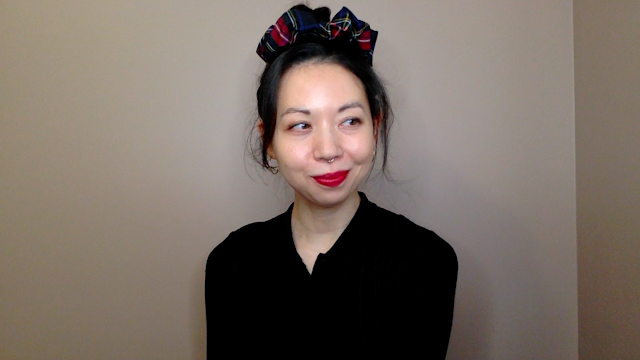VIDEO: Do it Now
Maintaining momentum is so important when receiving feedback at a studio or show-level.
In other words, do it now.
Receiving feedback on a show-wide or studio-wide level can be very tough, it often means here is a tidal wave of criticism headed your way as a leader. I have seen studio and show leaders get paralyzed by this, and they end up doing nothing, wasting the time of their employees who actually sat down and spent time on a studio-wide survey.
I suggest starting with low-hanging fruit, something you can action quickly. After doing so, report back to your crew/team on the timeline you promised. Do something to show that you are not only listening but acting on the feedback you have received, and make sure you connect your efforts directly to the survey.
An example of a simple action might be providing your employees with, say, more blue pens. Go to Staples right now and get some pens, get your facilities team to help distribute them. This seems silly, but if it's a recurring piece of feedback, it will be easier for you to do ASAP (and show you’re listening) than to immediately introduce more diverse leadership in your upper management team. Some changes will take necessary time, others do not, so do them.
Tasha Eurich, author of Insight: The Surprising Truth About How Others See Us, How We See Ourselves, and Why The Answers Matter More Than We Think says this practice is crucial for an organization’s success:
Organizational self-awareness means confronting market realities by actively seeking feedback from all stakeholders - employees, unions, customers, shareholders, suppliers, communities, legislators - and keeping those stakeholders informed about how the company is adapting to serve their changing needs […] Put simply, companies who fail to appreciate their market realities are fostering a collective delusion that will almost always sow the seeds of their own undoing.
- from Insight by Tasha Eurich
On this note of undoing, here is my personal experience: I have worked at three studios that have done studio-wide surveys. One made a few small efforts which they didn’t connect back to being a gesture towards the feedback received, the second did nothing at all, and the third went to great lengths to change things. The first studio is no longer in business. The second remains a smaller studio. And the third? Business is booming.
Kim Scott encourages businesses to create a culture of listening. In her book, Radical Candor: Be a Kick-ass Boss Without Losing Your Humanity, Scott offers three keys to create this culture:
Have a simple system for employees to use to generate ideas and voice complaints
Make sure that at least some of the issues raised are quickly addressed
Regularly offer explanations as to why the other issues aren’t being addressed
This system should not merely empower anyone to point out things that could be better but also enable others to help fix those things or make changes […] Define clear boundaries of how much time you can spend - and then make sure that time is highly impactful*.
- from Radical Candor by Kim Scott
(*Scott also offers the idea of a “fix it week” where you guessed it - your team gets to dedicate a week to fixing some underlying problems rather than the current project, an idea I love and you can read more about in Radical Candor)
If you are a PA, Production Coordinator, or Production Manager, you are very much considered a stakeholder in your show and studio. I mentioned in my very first lesson in A Course in Production back in 2020 that one of our core responsibilities as Production staff is to provide an example of the studio/company’s values in achieving the goal. As such, you should feel a sense of responsibility for the feedback that your show or studio gets.
For example, if your show does a post-mortem and part of the recurring feedback is that your show is clique-y, take responsibility and seriously think about how you can foster a more inclusive, friendly, and accepting culture on your studio.
Similarly, say your studio does a survey, and shares the results publicly. Let’s say one of the major items is that a a more diverse leadership team would be nice. As say, a Production Coordinator, you probably have zero control or input on who your Vice President of whatever is. You can, however, look at your show or team and reflect on the leadership. Can you recommend a woman or minority for a promotion or studio mentorship program? Remember, everyone starts somewhere in a company and good work should be recognized. People who start as Jr. Animators can end up as Supervising Directors, and that is something you can help monitor and contribute too.
Priya Parker reminds us in The Art of Gathering that “authority is an ongoing commitment.” If you, your show, your studio, asks questions, there is the inevitable expectation of answers and results. Parker says of leaders and processes, “It isn’t enough just to set a purpose, directions and ground rules. All these things require enforcement. And if you don’t enforce them, others will step in and enforce their own purposes, directions, and ground rules.”
If you are in Production, be hands-on, and help address some of this feedback quickly: do it now.


